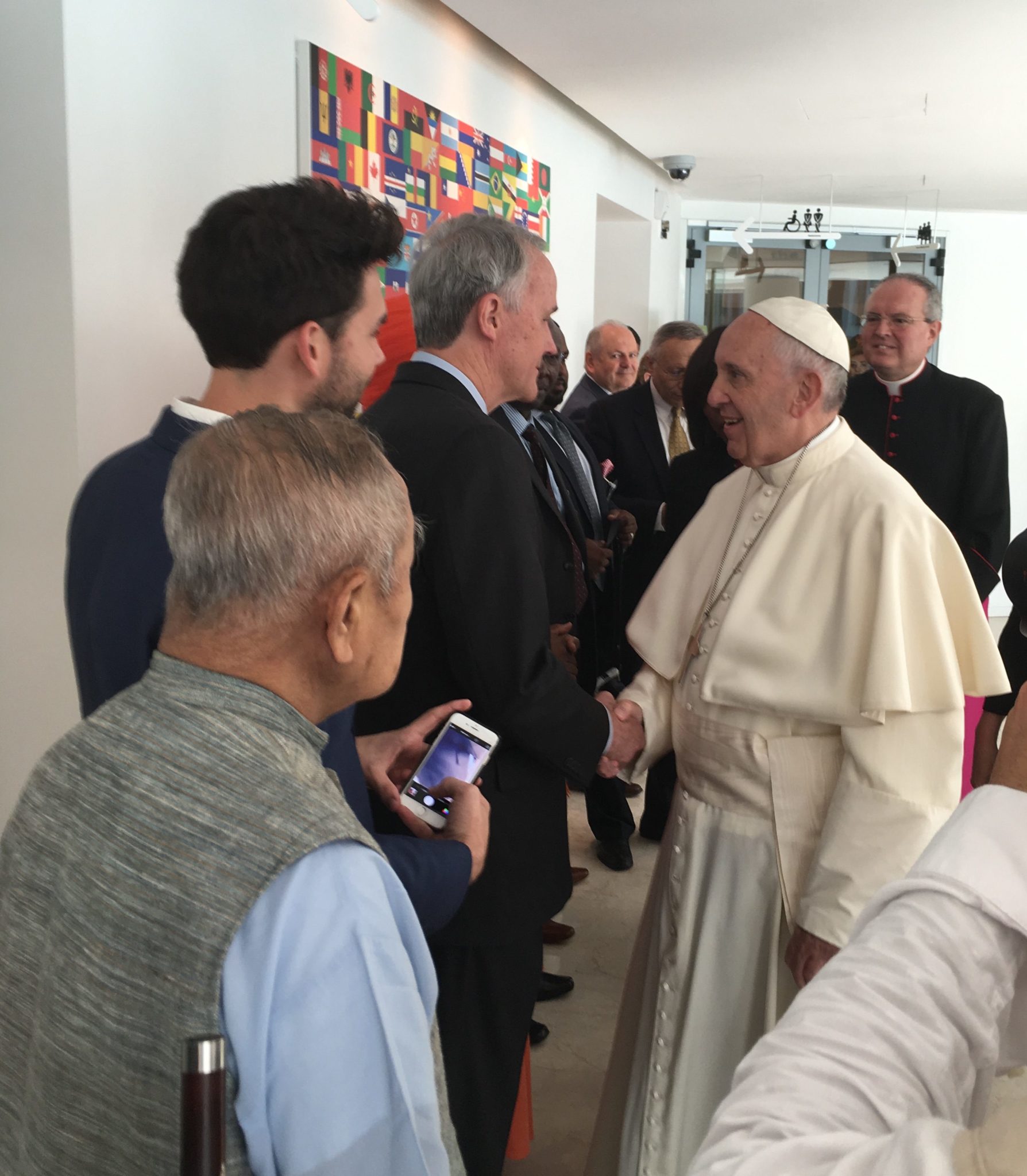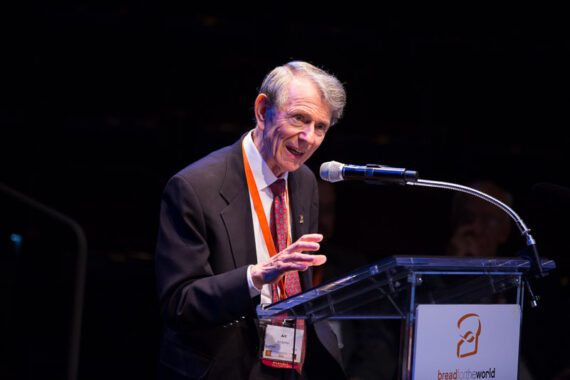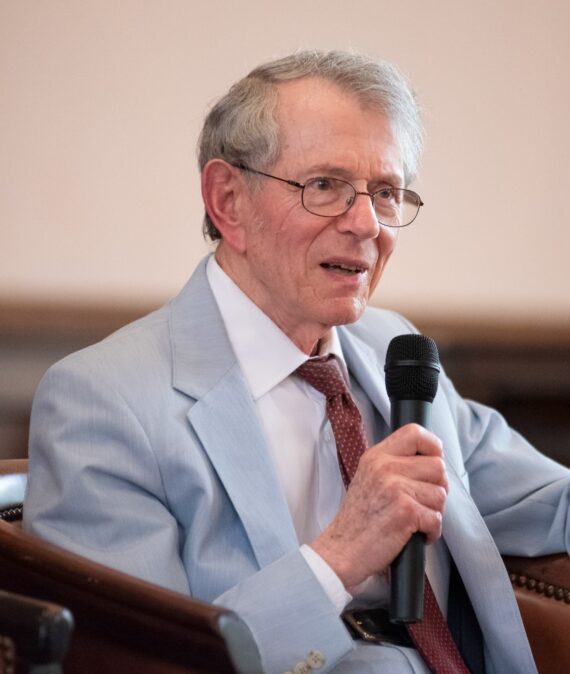Rome, Italy – Today, Pope Francis addressed the United Nations World Food Programme (WFP) on the need to end hunger and poverty. Shortly afterwards, Bread for the World President David Beckmann and other religious leaders spoke with the WFP executive committee on the topic.
During his remarks, the pope said, “A people plays out its future by its ability to respond to the hunger and thirst of its brothers and sisters. In that ability to come to the aid of the hungry and thirsty, we can measure the pulse of our humanity. For this reason, I desire that the fight to eradicate the hunger and thirst of our brothers and sisters, and with our brothers and sisters, will continue to challenge us to seek creative solutions of change and transformation.”
Following the pope’s remarks, Beckmann discussed with the WFP executive committee how faith-based organizations are uniquely powerful actors to end hunger. Beckmann and Pope Francis spoke during the WFP’s meetings on Inter-Religious Engagement for Zero Hunger. It was the first time a pope has visited the agency.
“The feasibility of Zero Hunger has moral and spiritual implications,” said Beckmann. “It is no longer ethically sufficient to help people in need. We aren’t acting ethically unless we are helping to end hunger, which means advocating for the systemic changes that are required. God’s grace leads directly to advocacy to end hunger.”
All of this comes during the important first year of work toward the landmark Sustainable Development Goals (SDGs). The 17 global goals, which have been agreed to by U.N.member states, aim to tackle the root causes of hunger and poverty.
Bread for the World, the largest anti-hunger advocacy organization in the world, believes the WFP should support faith-based and civil-society advocacy for Zero Hunger, the second of the SDGs.
“Bread for the World and the Alliance to End Hunger provide an example of faith-based advocacy for the end of hunger,” said Beckmann. “Religion can be a powerful force in support of the SDGs and Zero Hunger. Working together, faith-based organizations and the World Food Programme can help make Zero Hunger a reality.”
He affirmed Bread’s interest in the proposed Inter-religious Council on Ending Hunger. However, political will to end hunger is critical.
“Ending hunger by 2030 requires strong leadership from the U.S, which is the world’s largest development aid donor,” added Beckmann. “That is why it is critical during the 2016 elections that voters elect a president and a Congress committed to making ending poverty and hunger a priority.”



